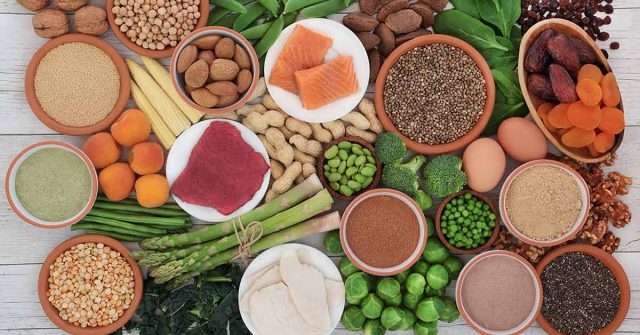Food is the primary source of energy for our bodies. It provides us with the necessary nutrients and vitamins that keep us healthy and functioning properly. The food we eat affects our physical, mental, and emotional health in many ways. In this article, we will explore the different types of foods and their effects on human health.
Carbohydrates
Carbohydrates are the primary source of energy for our bodies. They provide us with glucose, which fuels our muscles and brain. However, not all carbohydrates are created equal. Complex carbohydrates such as whole grains, fruits, and vegetables are slowly digested, providing us with sustained energy and preventing spikes in blood sugar levels. Simple carbohydrates such as refined sugars and white flour products provide quick energy but can lead to weight gain and other health problems if consumed in excess.
Protein
Protein is essential for building and repairing muscles, organs, and tissues. It also helps maintain healthy skin, hair, and nails. Protein-rich foods include meat, fish, poultry, beans, lentils, and dairy products. However, not all proteins are equal. Animal proteins are often high in saturated fats, which can lead to heart disease and other health problems. Plant-based proteins such as beans and legumes are a healthier alternative, providing us with essential amino acids without the added saturated fat.
READ ALSO: 4 Healthy Morning Foods You Should Eat In Your Old Age To Prevent Heart Problems
Fats
Fats play a vital role in our bodies, providing us with energy and helping us absorb essential vitamins and nutrients. However, not all fats are created equal. Saturated and trans fats found in animal products, fried foods, and processed snacks can raise cholesterol levels and increase the risk of heart disease. Unsaturated fats such as those found in nuts, seeds, and fatty fish, on the other hand, can improve cholesterol levels and reduce the risk of heart disease.
Fiber
Fiber is essential for maintaining a healthy digestive system. It helps regulate bowel movements and prevents constipation. Fiber-rich foods include whole grains, fruits, vegetables, and legumes. Consuming enough fiber can also reduce the risk of developing heart disease, diabetes, and certain types of cancer.
Vitamins and minerals
Vitamins and minerals are essential for maintaining a healthy body. They help regulate bodily functions and keep our organs working properly. Eating a variety of fruits, vegetables, whole grains, and lean proteins can ensure that we get all the necessary vitamins and minerals that our bodies need.
In conclusion, the food we eat has a significant impact on our health. Consuming a well-balanced diet that includes a variety of whole foods can help prevent chronic diseases and improve overall health. It is essential to pay attention to the types of foods we eat.








